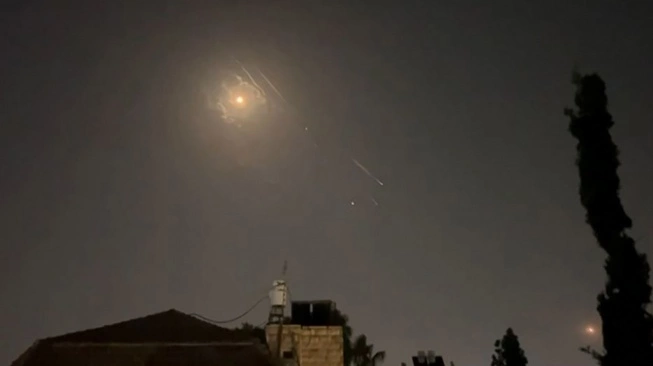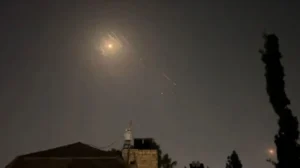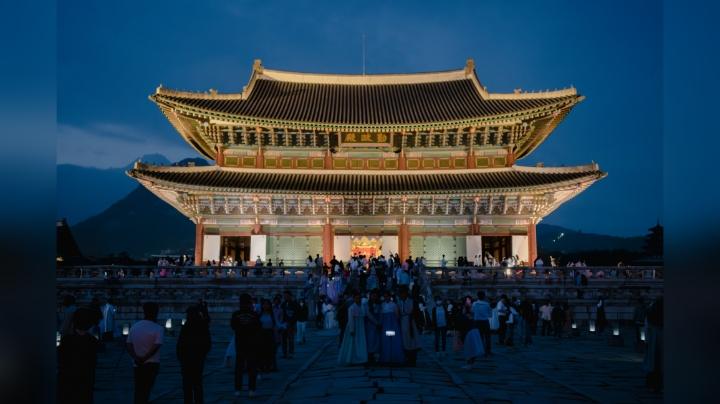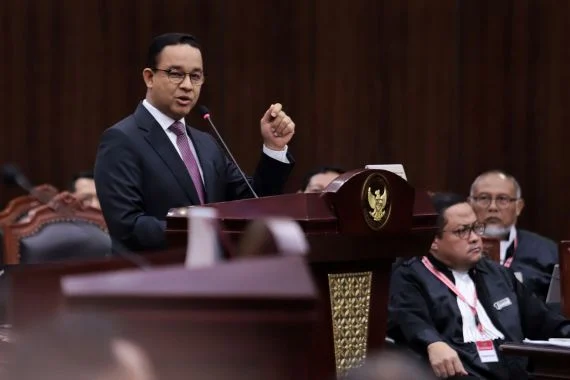

gloanna.com, Jakarta – Step into the heart of the Middle East as tensions rise and the Iran military activates air defenses at a crucial base in Isfahan. Get ready to dive into the latest developments surrounding this key strategic location that has captured global attention. Let’s explore what’s unfolding in Iran and its potential impact on regional stability!
Background on the Isfahan Base
Nestled in the heart of Iran, the Isfahan Base serves as a critical military installation for the country. Strategically located in central Iran, this base plays a crucial role in safeguarding national security and projecting power across the region. With its advanced infrastructure and capabilities, the Isfahan Base is equipped to handle various defense operations effectively. From air surveillance to missile defense systems, this facility stands at the forefront of Iran’s military preparedness.
Over the years, the Isfahan Base has undergone significant advancements and modernization efforts to bolster its defenses against potential threats. As tensions escalate in the region, ensuring the readiness of key military installations like Isfahan becomes paramount for Iran’s national defense strategy. As a key stronghold for Iran’s military forces, understanding the historical significance and strategic importance of the Isfahan Base sheds light on why recent activations of air defenses have garnered global attention.
Reasons for Activating Air Defenses
Iran’s decision to activate air defenses at the key Isfahan base has raised eyebrows internationally. The move comes amidst escalating tensions with the United States and other countries in the region. The activation of air defenses indicates Iran’s strategic stance to protect its military assets and national security interests. With increasing geopolitical uncertainties, Iran is taking proactive measures to safeguard its sovereignty.
Given recent events such as heightened rhetoric and military posturing, activating air defenses can serve as a deterrent against potential threats or preemptive strikes. It showcases Iran’s readiness to defend itself against any perceived aggression. By bolstering defense capabilities at the Isfahan base, Iran aims to send a strong message of deterrence while maintaining regional stability. The move underscores Iran’s commitment to protecting its territorial integrity and national security interests amidst complex geopolitical dynamics.
Tensions with the United States and Other Countries
Tensions between Iran and the United States, as well as other countries, have been escalating in recent times. The geopolitical landscape is fraught with uncertainty and challenges as both sides navigate through diplomatic standoffs and military posturing. The history of animosity and mistrust between these nations adds fuel to the fire, creating a volatile situation that has global implications.
The United States’ presence in the region, coupled with its support for allies like Israel and Saudi Arabia, has long been a thorn in Iran’s side. On the other hand, Iran’s nuclear ambitions and alleged support for militant groups have raised concerns among Western powers. This delicate balance of power keeps the world on edge, wondering when tensions might boil over into open conflict.
As sanctions bite deeper into Iran’s economy and regional influence wanes, Tehran is increasingly looking to assert itself through military means. The activation of air defenses at key bases like Isfahan signals a readiness to defend against potential threats from abroad. With each move on this geopolitical chessboard comes the risk of unintended consequences that could reverberate far beyond the region’s borders.
Impact on Regional Stability
The activation of air defenses at the key Isfahan base by the Iran military has raised concerns about its impact on regional stability. Tensions in the region have been escalating due to various geopolitical factors, including strained relations with the United States and other countries. The deployment of air defenses signals a heightened state of alert and readiness in response to perceived threats.
This move could potentially trigger a chain reaction among neighboring nations, leading to increased militarization and instability in the region. Countries like Indonesia are closely monitoring the situation for any spillover effects that may impact their own security interests. As military activities intensify, there is a growing sense of unease among regional players who fear being caught up in escalating tensions beyond their control. The ramifications of these developments extend beyond borders, affecting trade routes, diplomatic relations, and overall peace and stability in the region.
Potential Consequences of Increased Military Presence
The activation of air defenses at the key Isfahan base in Iran signals a heightened military presence in the region. This move could potentially escalate tensions and lead to a dangerous arms race with neighboring countries. With increased military activity, there is a risk of accidental conflicts or miscalculations that could spiral out of control.
Moreover, the deployment of advanced defense systems may provoke responses from other global powers, further destabilizing an already volatile situation. Additionally, the militarization of key strategic locations like Isfahan raises concerns about potential disruptions to international trade routes and energy supplies. The consequences of this military buildup extend beyond regional dynamics and could have far-reaching impacts on global security. As such, it is crucial for all parties involved to exercise restraint and prioritize diplomatic solutions to prevent any further escalation in tensions.
Conclusion
The activation of air defenses at the key Isfahan base by the Iran military underscores the escalating tensions in the region and raises concerns about potential consequences. As countries like Iran increase their military presence, it is important for all parties involved to prioritize diplomacy and dialogue to prevent further escalation of conflicts. The stability of the region hinges on peaceful resolutions and cooperative efforts towards de-escalation. It is crucial for global leaders to work together towards maintaining peace and security in this critical geopolitical landscape.






